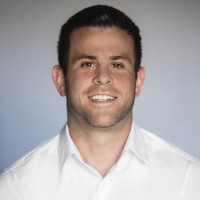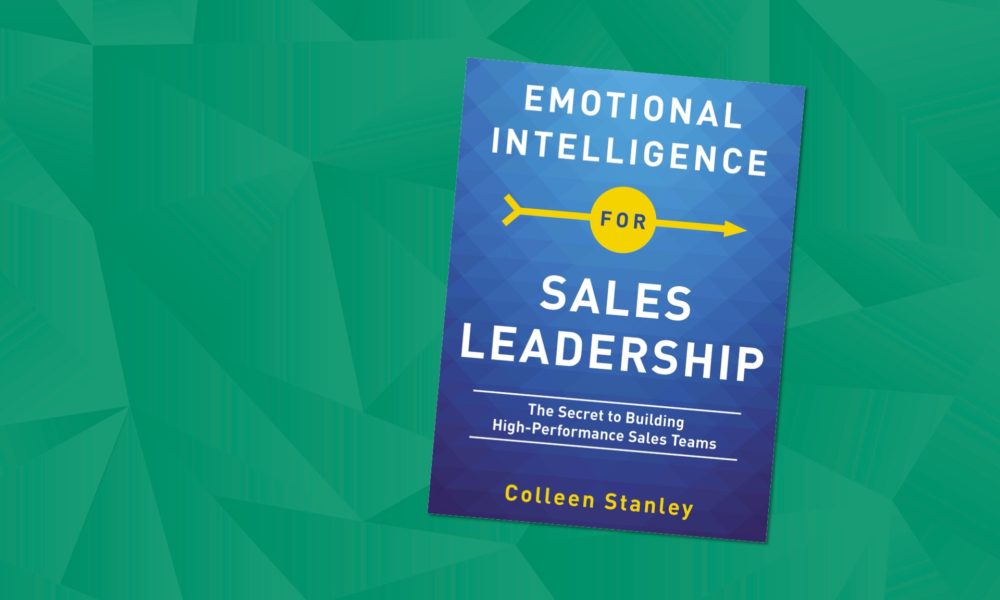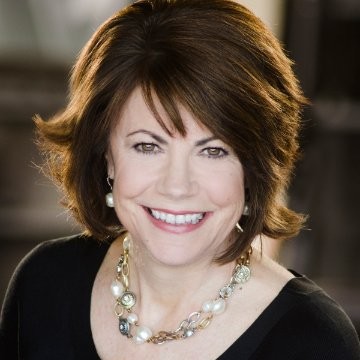Book Club: Jeff Kirchick on Enhancing Authenticity in Sales
2.4K Views | 24 Min Read
Olivia Fuller: Hi, and welcome to Book Club, a Sales Enablement PRO podcast. I’m Olivia Fuller. Sales enablement is a constantly evolving space and we’re here to help professionals stay up to date on the latest trends and best practices, so they can be more effective in their jobs.
Whether or not you work in sales, everyone has to sell all the time. Maybe you had to sell your boss on why you deserve a promotion or your kids on why they need to eat their vegetables. Selling is a skill that most people need to hone to be successful, but although we’re all familiar with the need to sell, people are often skeptical of situations where they know they’re being sold to. This is where authenticity becomes essential. It breaks through those barriers to establish trust.
To help us understand a bit more about why authenticity is so critical to sales success today, I’m so excited to welcome Jeff Kirchick, the author of the book, “Authentic Selling” to the podcast. Jeff, could you just tell us a little bit about yourself, your background, and some about your book?
Jeff Kirchick: Sure. Olivia, thank you so much for having me. It’s a pleasure. My name’s Jeff Kirchick. I’m the head of sales for Next Caller, which is a technology company in New York City, focused on fraud and authentication for enterprise contact centers. I’ve been working in sales for a little bit over a decade.
Something that is a little bit of a fun fact about me is that I actually focused on English and creative writing in college, which is kind of a non-traditional path for a salesperson. You don’t often hear that, that the people that are working in sales were in the library writing poems and short stories in college, rather than going to a business program. But it actually kind of was a natural reason for me to write a book. I’ve always wanted to do more with my writing. In terms of risk, marrying writing to my career was probably the least risky thing to do.
The book itself is really designed for two distinct audiences. One is for salespeople. So, that’s why we’re talking here, you and I. This is a way for salespeople to embrace authenticity in their selling philosophy. But for everybody else, this book is for them as well. What if you don’t work in a traditional sales setting? What I’m trying to show in this book is that everybody really is a salesperson in some way, and that you can improve your everyday life through understanding basic sales principles.
One of the motivations to write the book actually started a few months into the pandemic. Our political dialogue was very charged and still is today. In fact, I would say that our political dialogue has been very unhealthy for quite some time. I noticed that a lot of people that I know, or even that I don’t know but who I follow on social media, are very quick to judge others and to call them names like they’re stupid or this or that. I thought to myself, it feels like people don’t really have basic sales acumen. If they did, this conversation would be a lot better. People would be more inquisitive. They would want to know, they would ask more questions, they would have less assumptions. Salespeople know those things; salespeople know how to get their ideas rejected constantly. They know how to have empathy. That’s what I write about in the book. In some ways, it’s trying to get through to everyday people to help them have better conversations.
OF: Awesome. One of the things that you talk about in your book as well is how authenticity can be a differentiating factor, especially as we’re seeing so much technological innovation with the rise of machine learning and AI continuing to disrupt the B2B sales landscape. Why is it that authenticity is becoming so critical to the sales process today?
JK: Yeah, for sure. Artificial intelligence and machine learning are those two buzz words that you hear all the time now where it’s to the point where it’s almost kind of annoying when you hear it. It’s used so often, but it’s because they really do have such a large presence. The presidential candidate Andrew Yang had a lot of his platform about automation and preparing for automation. Specifically, he looked at the trucking industry and how there would be so many truckers that would be out of jobs with these autonomous vehicles. You see that Uber and Lyft are working on that. So, what happens to all of their drivers when that happens? That’s true for everybody, and this book is for everyone. The idea and the book is, if you don’t want to be replaced by a machine, you need to start thinking about what makes you better than a machine. At the end of the day, machines are better than humans in a lot of things. They can take regimented programs and learn them a lot faster than human beings. But what machines can’t do better than us is actually be us. They can never be authentically us.
It depends who you ask, there are some people who think that they can become intelligent, but for now let’s just say that your humanity and your authenticity is what separates you from the machines in the selling world. That’s true as well. We’ve seen that automation is taking over the sales world. There’s a lot of sales enablement companies that end in “.ai” these days. That’s because they’re automating functions that human beings used to do. Salespeople need to pay attention to this, as well. It’s really not outlandish that a machine could be doing a full-blown sales cycle in the next decade. I know that that sounds really strange to people to imagine a machine doing that job because you imagine salespeople as these outgoing people who take you out on client entertainment or take you out on the town in Vegas or whatever. There’s a lot more to it than that. Machines can overtake those functions.
There’s a lot of debate about the science versus the art of selling. And look, it’s a debate for a reason. But I think that most people allow for a seat at the table for the art. In other words, there is an art to selling even if you believe that it’s more scientific and that artistic side of sales is where the human element can really shine in my opinion.
OF: Absolutely. I think you’re spot on there. I think being able to add your own unique personality in the sales process is so critical. In your book, you demonstrate some of that yourself. You’re really vulnerable in the stories that you share and writing about some of your own personal experiences and your journey to finding your authentic self. How has that really helped you in your own career? How does vulnerability help build trust and ultimately demonstrate authenticity?
JK: Sure. It’s a good question, Olivia. I think that what it comes down to is it’s about leading by example. I wish I had it here right now, but there’s a famous drawing of two different leadership styles, one where there’s the leader who’s sitting on a throne telling everybody to move this big rock. Then, there’s another one where the same individual is just moving the rock themselves. People admire the leader who moves the rock out of the way more so than the one who tells them what to do.
That’s where vulnerability comes in because vulnerability is leading by example, in the sense that you are showing people how it’s done. In other words, if people are trying to learn from you, let’s just say that they don’t know what success looks like, and you just tell them what it takes to be successful, they can’t relate to that because they don’t understand what you’re saying. However, if you say to them, “look, I was once like you and I made this mistake. Here’s what I learned from that mistake. This is what I did instead. That’s why I’m successful.” Then, people can relate to that because you’ve identified the same hurdle that they seem to keep running into. You’ve acknowledged that it was a problem for you. You don’t pretend that you were just some know-it-all who succeeds all the time. You need to be vulnerable to establish trust with people. It’s not easy to tell people things that are personal or difficult. When people see that you are going out of your way to want to tell those stories, they will view you as somebody who’s honest.
I think a lot of times leaders who only talk about the good things they’ve done actually have less credibility because people don’t relate to that. We’re human beings. As human beings, we’re all flawed. For somebody to act like they don’t share the same flaws as anybody else, it just doesn’t seem realistic.
OF: Definitely. Something that you mentioned there that I want to dig into just a little bit more is that being authentic isn’t always just about highlighting the good, it’s about being honest. Part of building that trust is through accountability. So, what does accountable behavior look like in practice in sales today?
JK: Yeah. There’s actually a great link between vulnerability and accountability. Accountability, vulnerability, and authenticity all go hand-in-hand. I’ll kind of explain why. When you make a mistake and you know that you made a mistake, but let’s say you’re stubborn about it. In other words, you’re not going to be holding yourself accountable to your mistake. What happens is that you put on a facade about what really happened. There’s kind of like an external version of yourself that you put out to the world that denies any responsibility, but the real you is inside and kind of with your hands over your face pretending that it’s not you, right? So, the real you is in there, but you’re not exposing that to the world. That’s where authenticity and accountability are linked. It’s hard to hold yourself accountable. When you make a mistake, it’s hard to tell people that you made a mistake. That’s why I think, again, going back to the point about vulnerability, when people hold themselves accountable, or when people are vulnerable with others, they earn more trust because they’re perceived as being honest.
To answer your question about what that looks like in a formal sales setting, it means that you take ownership of all shortcomings. If you’re a sales leader and your team is not getting the job done, you could point your finger and say, “I don’t have a great team.” You could also point the finger at yourself and say, “I’m not a great leader because I haven’t enabled these people to succeed.” And there’s two different types of people. There are some people who prefer to point the finger at their team and to tell them to work harder and to do this or that. Or, there are people who will put their neck on the line and say to their team, “it’s a failing on my part that I have been unable to make you successful.” I think that people will, first of all, react a lot more positively to that second statement.
But it doesn’t mean that the sales leader shirks accountability for their team, as well. You can have different levels of accountability. But what I think is dangerous for leaders or even salespeople is to always shirk responsibility entirely. Anytime there’s a shortcoming, even if it’s not your fault, it’s always your responsibility to fix it. You always need to be accountable to your shortcomings in some way, shape, or form.
OF: Speaking of shortcomings, being able to improve your own skills and also support your team and improving their skills is really important to building authenticity. Sales training can play a key role in that. But you also talk about in your book how sales training can be one of the biggest challenges to authenticity. Sales training today often doesn’t really focus on how to sell authentically. So, because sales enablement is often really responsible for driving a lot of sales training programs, how can enablement practitioners help salespeople really build those skills that enhance authenticity through training? What does good training look like in your opinion?
JK: Yeah, it’s a fantastic question. It’s funny, I was talking to one of our SDRs this morning and we were talking just about random stuff, and she made a comment to me, something along the lines of, “I really appreciate that you gave me a framework but allowed me to spread my wings within that framework.” In other words, you didn’t just tell me what to do. I think that’s because people like to have some level of autonomy, they don’t want to show up to work and just be told what to do and go home.
I think it’s important when you’re training people to establish that this is a framework. It’s not the end-all and be-all. There’s a chapter in my book where I talk about cold outreach strategies and that chapter lays out a framework for how to write a good cold email, but it doesn’t tell you exactly what every single word needs to be in your cold email. It just says here’s a framework, a general thesis that works at a very high percentage of the time while still allowing you to be creative, allowing you to be a human being. I think it’s important that you establish upfront with the mentee or the listener that I’m going to give you tools, but I want that you want to empower them. In a lot of ways, you need them to understand what motivates them too.
One thing that I always do at the beginning of hiring anybody, or when I’m doing a new mentorship engagement, I ask people, “what is your why?” And I push them on that. I’ll ask them over and over again, because usually the surface-level answer is not the answer that I’m looking for. You really need to dig deep. I’ve been really surprised when you ask enough times that actually, sometimes people end up crying because their “why” is just something incredibly personal. When people are able to really think about why they’re even doing this – because it’s not conscious for them – a lot of the time it helps them to put more energy effort, creativity, etc., into everything that they’re doing. It anchors them to what they’re trying to get out of life. Because a lot of times in a program, you’re really trying to pigeonhole someone and just are thinking very narrowly about how do I do this one little thing. They can lose sight of like the bigger picture, like why they’re even in that program to begin with.
You need them to be thinking about the big picture. What is the landscape beyond this thing that we’re trying to teach you? Why is this thing that I’m teaching you going to allow you to get there? I think that often unlocks something inside of people where they feel a lot more energized about what they’re learning and that encourages them to apply it in a much more meaningful way.
OF: I really love that advice around helping people find their why. So, pivoting just slightly, we talked about training being part of the solution to helping to develop that authenticity. But you also talk about hiring authentic salespeople in your book. You talked about some specific traits that you look for, and one of those that you mentioned is hunger. Why is hunger so important for success in sales and how does it relate to authenticity?
JK: Yeah. I should add a caveat that I think hunger is probably more important for inside salespeople than it is for outside salespeople. So, SDRs who are writing cold email, that’s a monotonous job. They get a lot of rejection. Most of the time, people don’t even bother to open their emails. So, I think that hunger is particularly important for the beginning of your sales career. I mean, I think it’s important for all aspects of your sales career, but the reason it’s not the most important part of selling itself is because hunger could be applied to any career field, and it is meaningful to any career field.
I wouldn’t say that hunger is necessarily specific to sales as something that’s important, but I do think that when it comes to selling, it does have kind of a special place in my heart, because if you’re really passionate about solving problems for people that will come through in the way that you interact with people. You can be a really hungry salesperson, but if you’re hungry for the right reasons, which is that you are genuinely interested in trying to make somebody else’s life better, I think that customers can see that you’re very hungry. But my motivation is that I actually enjoy making other people’s lives better. If you were to ask me, why do you want to make money? It’s because if I have a lot of money, I can make other people’s lives better. I could afford to write more. I’d have financial freedom to be able to try to touch more people’s lives. I think it’s an innate part of us as human beings that we want to help others. That’s why they say it’s better to give than it is to receive. I think that we all enjoy giving.
The reason I say hunger is important for an outside salesperson isn’t kind of the intuitive reason of like hustling and working hard. It’s more for being hungry to help solve problems. If you’re really sincere about wanting to help people, they can tell the difference between being hungry to close a deal and being hungry to solve a problem. There’s some nuance there, but I think it’s an important nuance.
OF: That’s awesome. You mentioned just now some of your own personal goals for success and what that looks like, but I’m curious, how does authenticity tie back to performance goals and really help drive business impact?
JK: Sure. So, I can only speak for my own experience, but for me personally, I think it has led to more business. I sell to enterprise Fortune 100 clients, typically million-dollar-plus average contract value. So, it’s kind of a lengthy sales cycle, like a nine-month sales cycle on average. You can’t just be a fly-by-night salesperson to succeed in what I’m doing. I think that’s true for most salespeople, right? I mean, it’s true for pretty much anybody. I’ve gotten feedback from customers, and this is probably the number one thing that I would love to hear and the most rewarding part of my job is when there’ve been a handful of customers that I’ve signed up with, who said something along the lines of, “we want to work with you because of you. You never made us feel like you were trying to sell us something. I always felt like you just wanted to help us.” That’s an actual quote, not verbatim, but something along those lines from one of my customers.
I think another one had moved forward with one of our competitors for a year. I never changed the way I treated them over that period of time. I remember when he decided to change his mind and work with us. He said the same thing, “I appreciate that you didn’t treat me like I had a dollar sign over my head when I moved forward with a competitor. You understood and you treated me the same way for that year. You kept providing me value. You were a friend to me.” That’s the stuff that you want to hear.
There are some people out there who are big believers in the science of selling who would say, “Jeff is just the ‘too nice’ guy, maybe his philosophy works for some people and not for all.” I think there’s some legitimate debate around how much room at the table there is between the science and the art. But for me personally, it has been very beneficial towards getting a lot of business in the door for my company. One thing that I will say about it is that it makes me feel good about what I do. I feel good knowing that every day I’m presenting an honest version of myself. If I were generating these sales by putting on a different hat, I don’t know how I would feel every day. That’s important, it’s important for you in your career to feel good about the way you do what you do.
That’s another thing that I don’t want to be lost in this. It’s not about performance. It’s not just about performance. Performance obviously matters a lot, but it’s also about how you feel every day. Are you excited about the way that you’re doing business with people? If you don’t feel good about the way that you’re doing business every day, that will catch up to you, it’ll come across in the way that you present things, it’ll affect your mood. I think it’s important for performance, but also for the human psyche.
OF: Absolutely. That actually relates really well to one of the quotes that I loved in your book that you mentioned a few times, which was just around, “treat people like they’re a great friend of yours and just talk to them like you have that friendship there.” That’s some fantastic advice. Thanks again so much, Jeff, for taking the time to share all of this insight with our audience, I really appreciated the chance to talk to you more about this book.
JK: Yeah, thank you for having me. It was a great time.
OF: To our audience, thanks for listening. For more insights, tips, and expertise from sales enablement leaders, visit salesenablement.pro. If there’s something you’d like to share or a topic you’d like to learn more about, please let us know. We’d love to hear from you.
Curious to learn more? You can find Jeff’s book here.













